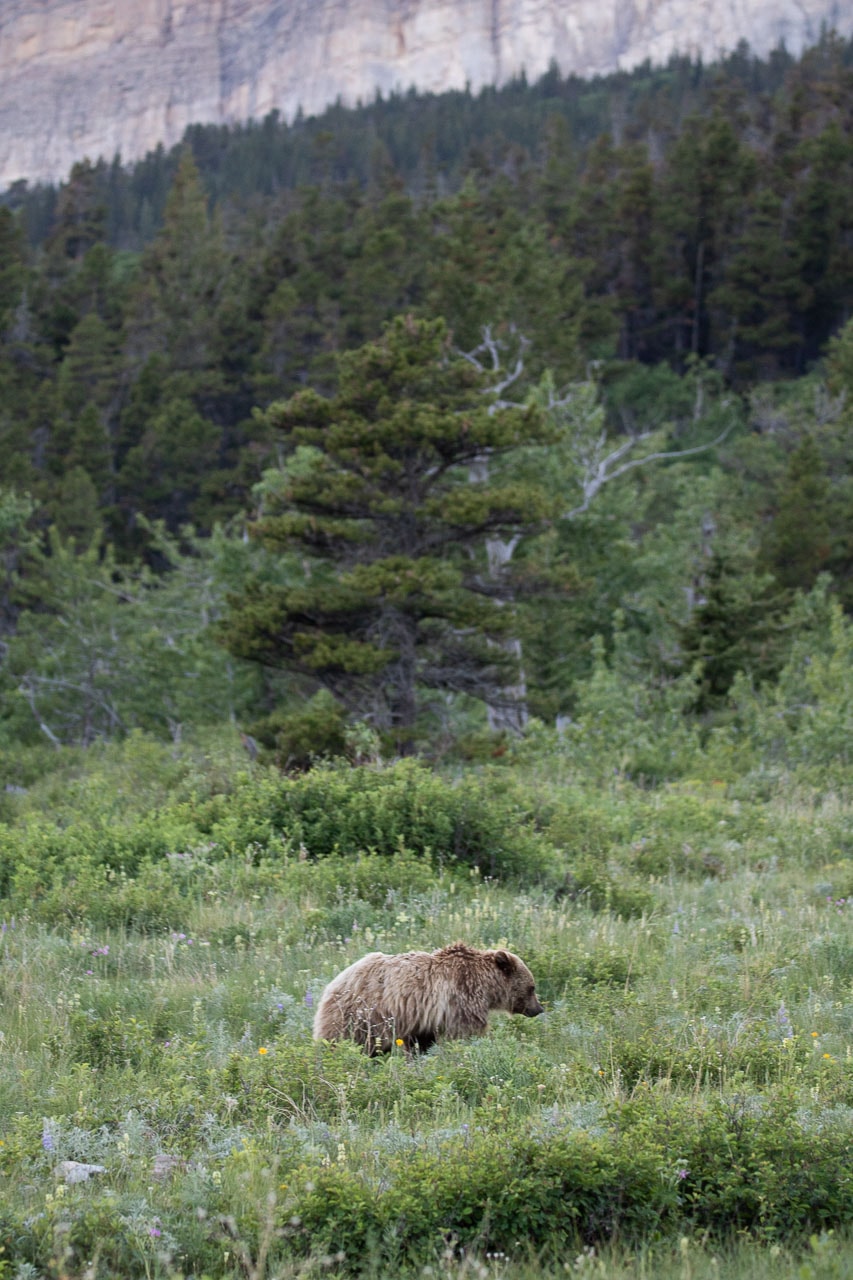This news story about a food-conditioned grizzly bear that was euthanized in Glacier National Park is based on a July 21, 2023, National Park Service press release. You can read the original release here.
The actions of careless visitors have resulted in the euthanasia of a grizzly bear in Glacier National Park.
The bear—a sow that was only five years old—was part of grizzly bear population study in the park, but became food-conditioned after obtaining food at the Many Glacier Campground and showed increasingly aggressive behavior.
“Glacier National Park officials, in coordination with the U.S. Fish and Wildlife Service, euthanized a food-conditioned, five-year-old female grizzly bear on Thursday, July 20,” a statement by park management said.

Aggressive Food-Conditioned Grizzly Bear Euthanized in Glacier National Park
This action was taken after the bear received multiple food rewards from unsecured sources, causing it to exhibit increasingly aggressive behavior. This behavior posed a threat to human safety making it necessary to remove it from the population.
On Tuesday, June 27, the grizzly was reported moving through the Many Glacier Campground where she obtained unsecured human food from a campsite picnic table.
Because the bear received a food reward, and in accordance with Glacier National Park’s Bear Management Plan, park staff restricted the Many Glacier Campground to hard-sided camping only. Staff hazed the grizzly out of the campground on two later occasions.
The campground reopened to all camper types on Monday, July 10 after radio tracking showed the bear was no longer in the immediate area for several days.
On Tuesday, July 18, however, the bear showed up at the Swiftcurrent Lake Boat Launch where she aggressively charged a family picnicking on the shoreline.
Although the family was able to secure food items, the bear was able to successfully obtain beverages that were left cooling in the lake. The incident was immediately reported to park staff.
Park officials made the decision to euthanize the grizzly sow in coordination with U.S. Fish and Wildlife to capture and remove the animal as per the park’s bear management plan. Park officials coordinated with the U.S. Fish and Wildlife Service as required under the Endangered Species Act.
On Thursday, July 20, the grizzly was euthanized near Lake Sherburne. This is the first food-conditioned grizzly bear to be euthanized in the park since 2009. (In 2021, the park had to euthanize a food-conditioned black bear, also in the Many Glacier area.)
Euthanized Grizzly Bear Was Part of a Population Study in Glacier National Park
This grizzly bear was radio collared in 2019 as part of a grizzly bear population trend study in which the park monitors up to 10 radio collared female grizzly bears.
There are an estimated 300 grizzly bears in Glacier National Park. Numerous state and federal agencies work together to manage and recover the grizzly bear population in the Northern Continental Divide Ecosystem, which includes Glacier National Park.
Once a bear receives a human food reward, it can become food-conditioned. Food rewards can include items such as human food, trash, livestock feed, and pet food.
Over time, food-conditioned bears may become bold or aggressive in their attempts to obtain human food, as was the case with this bear.
Once a bear has become food-conditioned, hazing and aversive conditioning are unlikely to be successful in reversing this type of behavior. Food-conditioned bears are not relocated due to human safety concerns.
How Visitors Can Help Prevent Bears From Becoming Food-Conditioned
Park visitors can help ensure the future of grizzly bears by taking steps to prevent bears from becoming food-conditioned. Glacier National Park management offers the following guidelines:
- Do not stop along roadways in the vicinity of bears.
- Secure all food and garbage.
- Report all bear sightings to the nearest ranger.
It may be cliché, but more often than not, “a fed bear is a dead bear.”
See this article for more information about how to stay safe in grizzly bear country.
